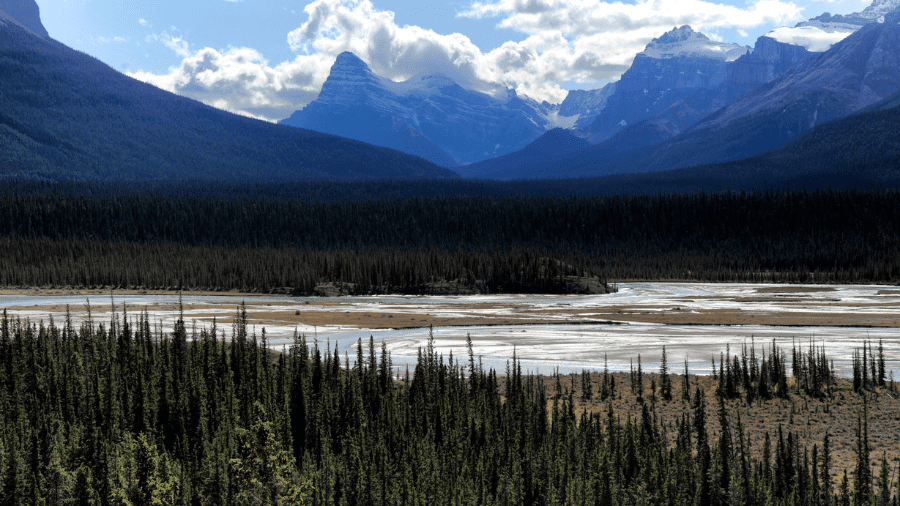This article originally appeared in the Globe and Mail.
By Ken Coates, September 22, 2022
Our natural world is deteriorating, with human actions and industrial processes causing most of the damage. Less acknowledged is that societies have some capacity – scientific, economic and political – to set things right, reverse destruction and overcome errors of the past. Canada’s greatest opportunity in this regard could well be the ecologically vital Saskatchewan River Delta, or SRD.
Canadians compartmentalize environmental challenges. Maritimers worry about herring closures, British Columbians fret about disappearing Pacific salmon, Yukoners stress about the Peel River watershed, Manitobans feel the obstacles of the Red River and Yellowknife residents cope with pollutants seeping from the Giant Mine.
Environmental crises that cross provincial, territorial or international boundaries are easier for politicians to punt into the future. We respond well when confronting pressing and geographically localized incidents, less so to longer-term, interjurisdictional challenges. But the time has come for Canada to urgently prioritize serious problems and work collectively to set things right.
The drainage basin of the North and South Saskatchewan rivers covers much of the Prairies. Communities in Alberta and Saskatchewan draw millions of litres of water for domestic and industrial use. Irrigation, particularly in Alberta, pulls even more. Farm runoff changes water chemistry. Infrastructure such as the Gardiner Dam, the E.B. Campbell Dam and a planned Saskatchewan irrigation system interrupt natural flows.
The benefits of the river system to Western Canada are substantial and important. Those dams, for instance, generate electricity needed by the regional power grid. But these are transforming the SRD, North America’s largest inland delta. Flows of water, and the nutrient-rich sediments they carry, have changed dramatically. Invasive plants alter the banks, and once-broad, shallow channels are deepening, reducing the flows to tributaries that sustain life. The ecology is transforming – fast.
The SRD is one of the world’s greatest migratory bird flyways, but as ponds dry up, birds are finding different North-South flight paths. Deer and moose populations are declining, muskrats have nearly disappeared and regional fisheries are traumatized. And the economic and social lives of First Nations and Métis are being affected considerably.
The SRD’s problems are well documented. The University of Saskatchewan’s Global Institute for Water Security has collaborated with Indigenous communities on extensive research to analyze the massive change taking place. The GIWS and regional partners have developed cost-effective strategies for restoring the natural flow of water and sediments. Unfortunately, one of the main findings of this community-based science is that knowledge without meaningful action can create little more than frustration and malaise. People in the West know what needs to be done (how about adding sediment to the watercourse to replace that being blocked by the dams?) but feel nothing is happening.
This is actually an opportunity for federal Environment Minister Steven Guilbeault and his Alberta and Saskatchewan counterparts, Whiteny Issik and Dana Skoropad.
To grasp the ecological urgency threatening the SRD, visit Cumberland House and take a boat ride one of the nearby hunting lodges. Do not surround yourselves with scientists; they have done their work, the problem and solutions are well-known. Instead, spend a day on the land and water with the people of the region. Experience the passion of the First Nations and Métis. See the invasive plants choking off the SRD. Look for the missing muskrats which once supported generations of trappers. Discover how some simple interventions could help set the SRD on a better course.
Mr. Guilbeault, Ms. Issik and Mr. Skoropad: Please do not let debate about the SRD become another political stalemate stuck in the mud of federal-provincial relations. Show First Nations and Métis communities that Canada can act decisively on Indigenous and ecological priorities.
Governments across the country, including Ottawa, speak about the importance of listening to Indigenous communities, and talk about following the lead of people who have lived on the land for centuries. Seldom are these platitudes matched by meaningful action. It is time to change this pattern and approach the future in true, meaningful partnership.
In terms of working jointly to repair our planet, the SRD is an ideal place to start. Combining the need to protect an invaluable ecosystem and a way of life, the SRD is an opportunity to blend Indigenous knowledge with Western science to respond to environmental dangers.
It is also an opportunity for multiple jurisdictions – in this case Alberta, Saskatchewan and Canada – to understand the downstream impact of upstream activities, and take collective responsibility for the problem.
Canada must not only listen to Indigenous communities, but work with them to develop long-term solutions. With environmental sensitivities at a high point, there is likely support for dramatic and targeted measures. The country needs some ecological victories, clear signs that errors of the past can be overcome. The Saskatchewan River Delta could provide a rallying cry for quick, cost-effective and meaningful environmental action.
Seize this opportunity to reset a nation’s compass. We may not get another chance.
Ken Coates is distinguished fellow at the Macdonald-Laurier Institute and Canada Research Chair in Regional Innovation, University of Saskatchewan.






